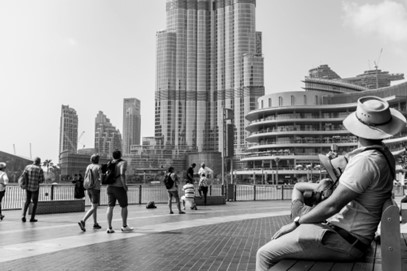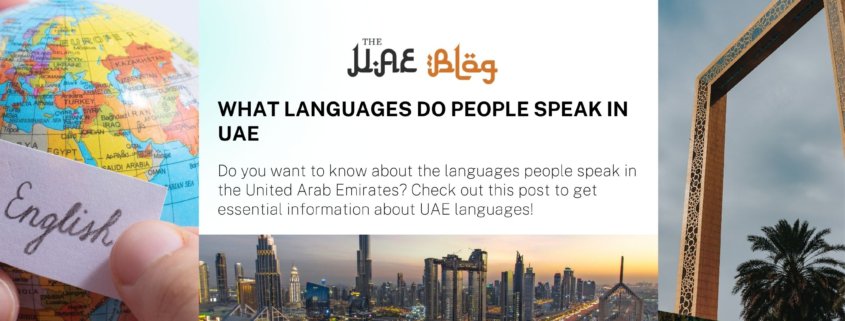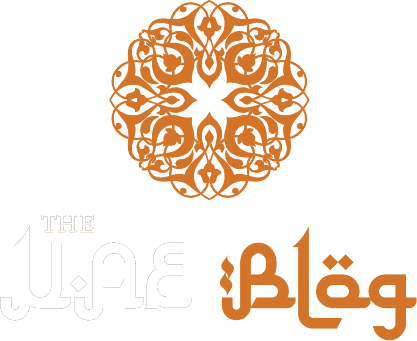What Languages do People Speak in UAE [Updated]
Do you want to know about the languages people speak in the United Arab Emirates? Check out this post to get essential information about UAE languages!
Languages People Speak in UAE
The United Arab Emirates has many cities and towns. However, Abu Dhabi and Dubai are the most famous and largest cities in the country, driving millions of people for business and tourism purposes.
These two cities are renowned for their sleek skylines and world-class infrastructure.
The UAE is the land of brave, intelligent, sincere, and friendly people. The population in the UAE is made up of citizens from all over the world, each speaking their own native language. While Arabic remains the official language, English is widely used as a common. It has beautiful landscapes, beaches, and mosques. Peace and prosperity are two factors that make the UAE one of the most visited countries in the Middle East.
In addition, the UAE is home to more than 200 nationalities, multi-ethnicities, and cultures. The official language of the UAE is Arabic, but due to its international trading and tourism industry, there are many other languages spoken in the country. Most people ask: What languages do people speak in UAE? Today’s article will answer this question. Read on!

Arabic
Arabic is the official and widely spoken language in the UAE. Therefore, it is spoken by most of the population. It is a Semitic language that has been around for centuries. Arabic is also the language of Islam, so it is often used by Muslims in prayer. There are several variations of the Arabic language prevalent in the country. These include the standard, modernized, and literary Arabic versions. The standard version is used in administrative, governmental, and legal affairs, while the modernized version is used for everyday conversations.
Although spoken Arabic language in the UAE has different versions influenced by geographical regions, most people in the country speak the Khaleeji or Gulf dialect. It is the most commonly used version of spoken Arabic in the country. In addition to this dialect, another common version spoken in the UAE is Masri or Egyptian Arabic.
Bear in mind that Arabic people from other countries, such as Iraq, Sudan, and the Maghreb, also influence the linguistics in UAE. So, Arabic is the primary language spoken and used in the UAE.
English
English is an international language spoken worldwide, including in the UAE. It is the most common language spoken in the Emirates after Arabic. Because UAE has a high number of expats who speak English, we won’t be wrong to say it is the second native language of the region.
In the UAE, you will find road signs, food menus, phone directories, and other things mentioned or written in English, along with the Arabic language. It is mainly used as a business and educational language in many institutions, universities, and companies. Most people working in the UAE are from different countries, and their primary language for communication is English. It is also a very significant language in the UAE and is used for tourism, trade, and the media. So, you can use English to interact with people in the UAE, whether you order, shop, or visit places.
On the other hand, English is not a common language in rural UAE. This language is widely spoken in big cities like Dubai, Abu Dhabi, and Sharjah. So, when you visit the rest of the UAE, make sure you know basic words in Arabic for streamlined communication. You can also use translation apps to ensure everything goes smoothly.
People residing in rural regions of the UAE do not understand, read, or write in English. Children in schools and colleges communicate and learn in the Arabic language. Educational institutions in big cities like Dubai and Abu Dhabi have many international schools with English as a primary language for learning.
In addition to the official languages, the UAE also has some minority languages spoken by certain ethnic groups in the region. These include Hindi, Urdu, Tagalog, Malayalam, Punjabi, and Tamil. In some areas of the UAE, you may also find people speaking other languages, such as Spanish, Farsi, and French.
Hindi/Urdu
The United Arab Emirates has experienced a significant increase in the Indian population. Indians initially migrated to the UAE after the discovery of oil resources. Today, Indians dominate every industry and sector in the UAE, including retail, construction, manufacturing, financial services, transportation sectors, tourism, and even information technology (IT) sectors.
About 85% of expats live in Abu Dhabi and Dubai. 71% of people belong to Asian countries, including India, Pakistan, Bangladesh, Afghanistan, and Nepal. Hindi and Urdu are two different languages that share the same writing system and mostly speak by these people. These Indian-origin languages are spoken by many people in UAE, particularly in the Indian communities. Many South Asian expats speak these languages in the UAE so you will find a lot of people speaking Hindi/Urdu in the country.
The two languages are very similar; they use the same vocabulary, but Hindi uses more Sanskrit words, while Urdu has a lot of Persian and Arabic influence. Many people in the UAE consider both Hindi and Urdu as a single language, especially those who do not understand either of them. so it is common to hear people saying “Hindi/Urdu” instead of “Hindi and Urdu.” If you ever visit UAE, you will find both languages written in many public places for better communication.
Besides Arabic and English, Hindi and Urdu are other common languages spoken in the UAE. However, you will also find Farsi, Tamil, Bengali, and Malayalam people.

Mandarin
Mandarin is becoming a popular language in the UAE, thanks to hundreds of thousands of Chinese working in different regions of the Emirates. Recent years have seen steady development and the rise of Mandarin in Abu Dhabi and Dubai. There are quite a few Mandarin-speaking Chinese schools, language centers, and communities in these cities. It is also the primary language of many international companies in the UAE. Mandarin is not widely spoken outside of the Chinese population, so it can be quite useful to learn some phrases in this language.
Some educational institutions in the largest cities of the UAE offer Mandarin as an additional language. Similarly, when you visit shopping malls, hotels, and restaurants, you will find people communicating in Mandarin. For example, when you visit the Dubai Mall, different shops feature signage in this language.
Final Words
UAE is one of the most beautiful countries in the gulf region. Most of the population in the UAE are expatriates from different countries. These people come to the country for business, trade, and tourism. In the UAE, people commonly use Arabic, English, Hindi/Urdu, and Mandarin for communication. Although English is widely used in the country, it is important to learn the language of the region and its cultural diversity. Expatriates speak different languages, but the most common ones are English, Hindi, Urdu, Mandarin, Bengali, Farsi, and Malayalam.
FAQs
How many official languages does the UAE have?
The UAE’s official language is Arabic. The other five recognized languages in the legal system are Chinese, English, French, Hindi, and Russian.
How many languages are spoken in UAE?
After Arabic, English is the language of preference among the population, with 75% of residents being foreigners. Hindi, Gujarati, Urdu, and Malayalam are the most widely spoken languages in Dubai as a result of immigrants and laborers from South Asian nations.
How do you say hello in Dubai?
Visitors will most frequently hear the salutations Marhaba (hello) and ma’assalamah while in Dubai (goodbye or with peace).
- Article based on personal opinion, experience and research.
- Photos from Unsplash & canva.











Leave a Reply
Want to join the discussion?Feel free to contribute!